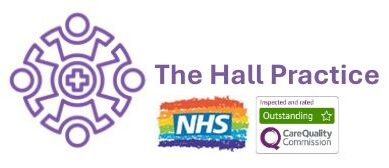The Hall Practice contracts with the Buckinghamshire, Oxfordshire and Berkshire West Integrated Care Board to provide general medical services as described below.
Please note, we do
NOT provide treatment for dental conditions. Please contact your dentist or
click here for further information.
Core Services:– General management of medical conditions
– Health promotion advice
– Emergency care if appropriate
– Referral for other services, if appropriate
– Urgently required care for temporary residents
– Chronic disease management such as diabetes, asthma, coronary heart disease, stroke, chronic obstructive airways disease, epilepsy
Additional Services:– Cervical screening
– Contraceptive services, including coil fitting
– Vaccinations and immunisations
– Child health surveillance
– Antenatal and postnatal maternity services
Enhanced Services:– Suture removal after NHS procedures
– Smoking cessation
– NHS Health Checks
– Learning Disability Health Checks
– Near Patient Testing
– Care Home Monitoring
